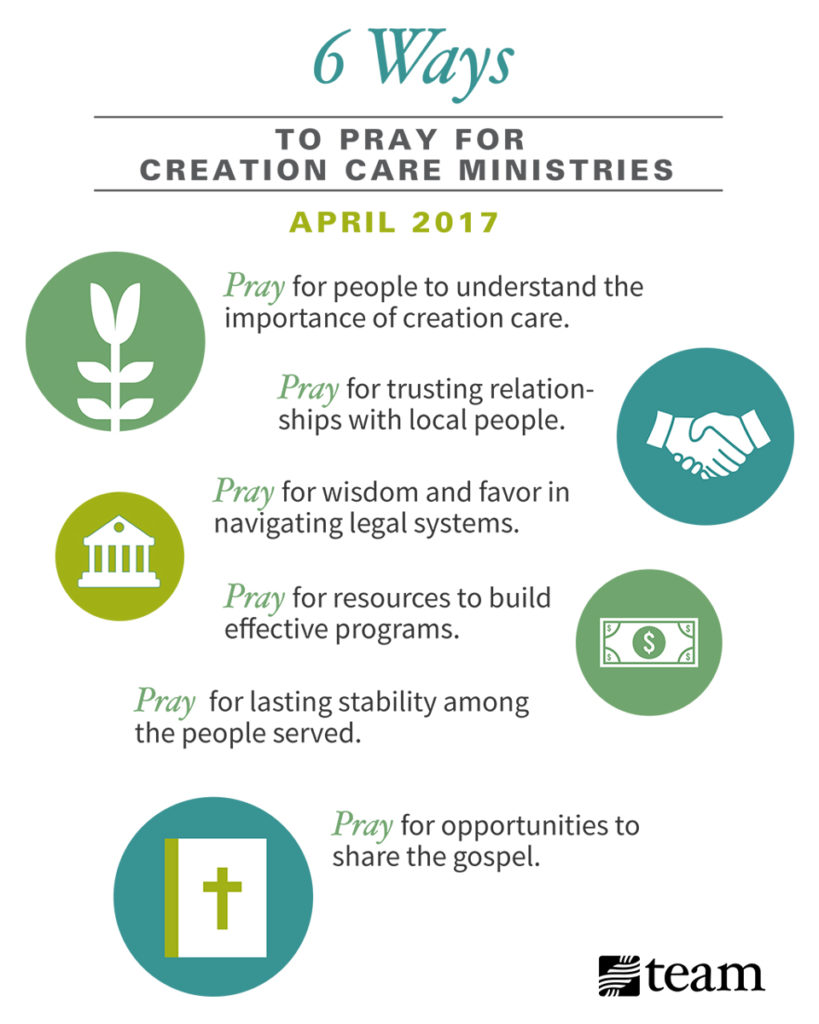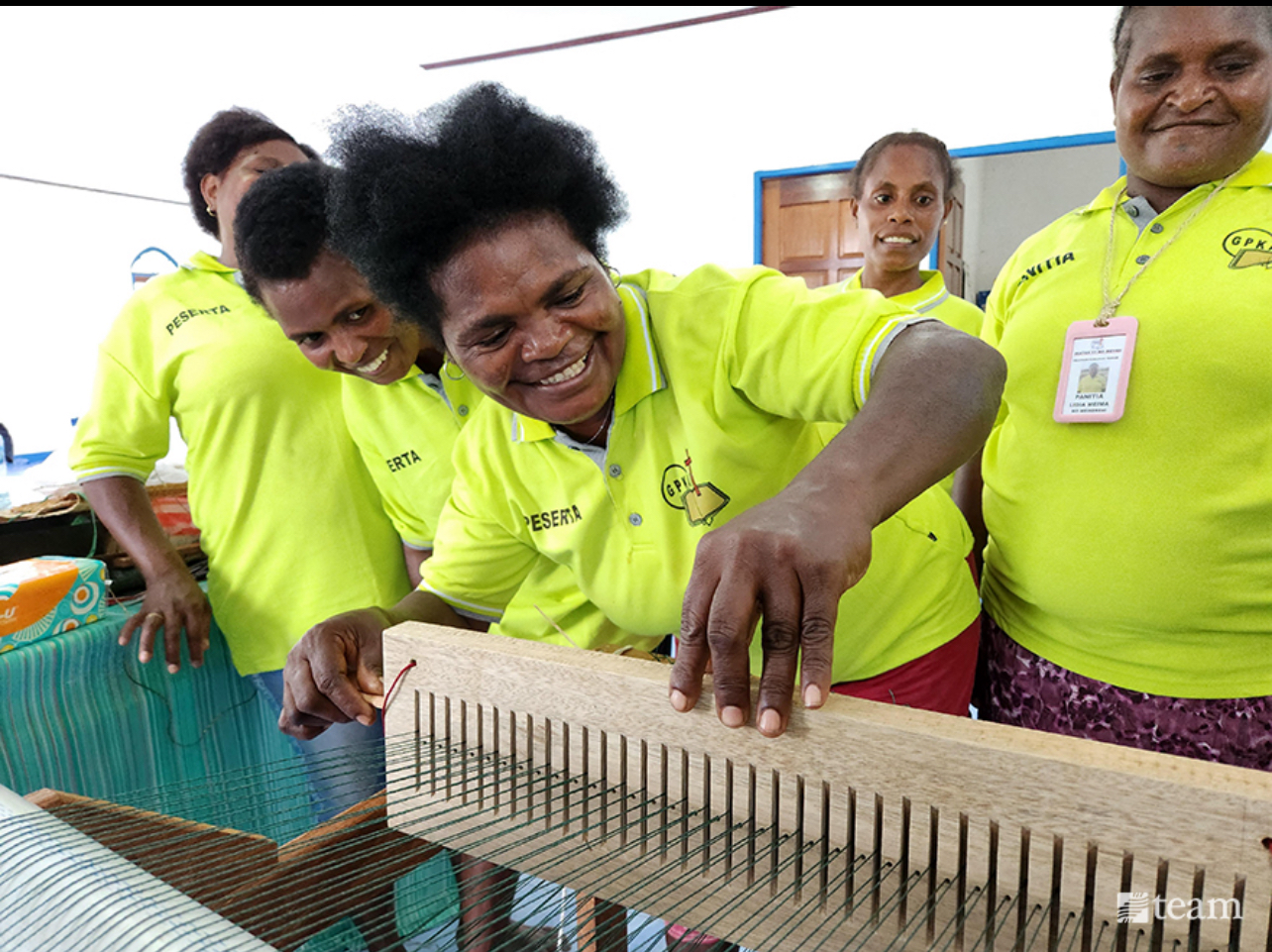
Prayer Focus
6 Ways to Pray for Creation Care Ministries [April Prayer Focus]
April 4, 2017
by Mark Watson
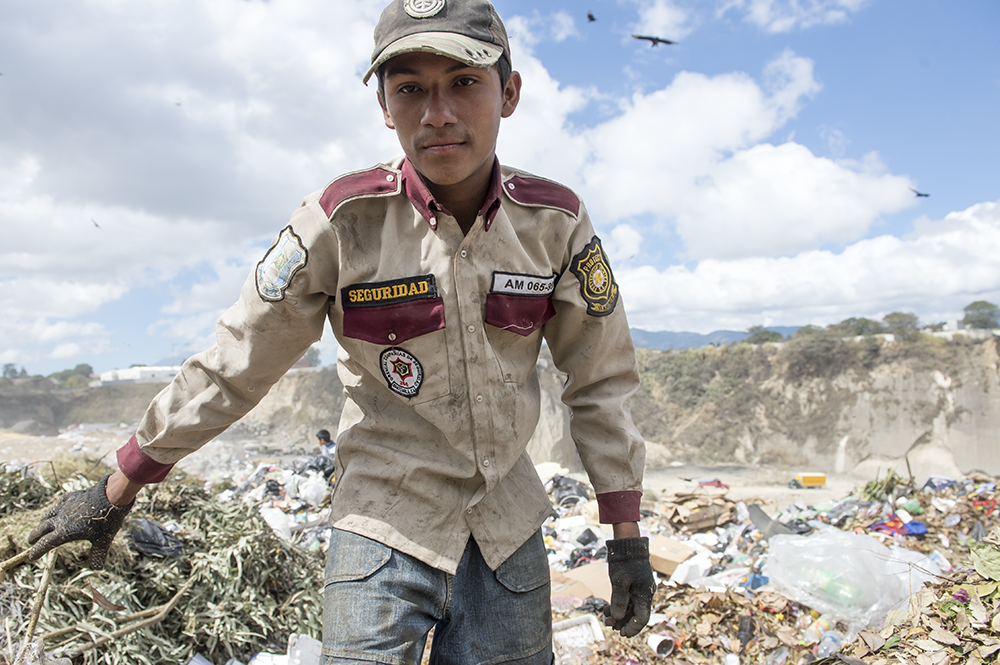
Whether it’s ruined soil, contaminated water or disease caused by piled up garbage, there’s no doubt that environmental destruction hurts people deeply. In the midst of that hurt, many people doubt God’s power, His love or that He even exists.
That’s why missionaries around the world are shining a light on God’s handiwork through creation care ministries. By teaching sustainable farming methods, cleaning beaches and more, missionaries get to show how faithfully God has provided for our physical needs — and that opens doors to share about the eternal life He offers all of us.
This April, will you pray with us for creation care ministries?
Click here to get a printable version of these requests.
Pray for people to understand the importance of creation care.
“We do not get any agricultural change or change in any communities unless you’ve first dealt with the heart issues.” –Craig Deall, CEO Foundations for Farming in Zimbabwe
In Zimbabwe, many farmers were taught to plow deeply into their fields, not knowing it would cause soil erosion and hurt their ability to grow healthy crops in the future. That’s why TEAM missionaries partner with local workers to show the long-term impact such practices have — and teach sustainable methods.
When farmers understand how their methods hurt their land, they’re more than ready to try solutions like no-till farming and aquaponics.
Ask God to give missionaries around the world insight into how local, natural resources can be nourished. Ask that they will be able to communicate this clearly. And pray for the people they serve to see clear benefits in using these new methods.
Pray for trusting relationships with local people.
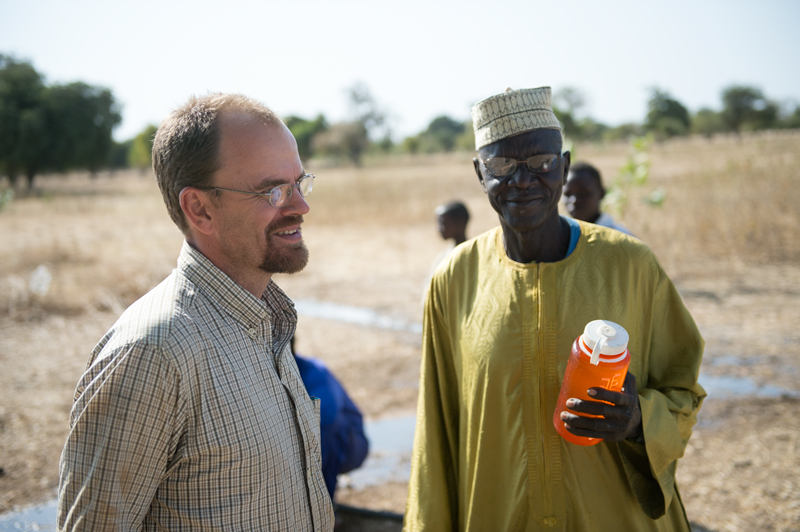
Scott Downing drills wells in a mostly Muslim area of Chad. Village leadership knows he teaches God’s Word, but they allow him to remain because of the love he demonstrates. Photo by TEAM
Chadian villages are eager for water wells drilled by TEAM missionary Scott Downing. But the gift of clean water isn’t what opens them up to the Gospel. It’s seeing the servant’s heart Scott’s team has for the people.
“We know you are teaching God’s Word when you go to villages to drill wells,” one village chief said, “but that’s OK because we can see that you love the people.”
Pray for missionaries to demonstrate trustworthiness and love to those they serve. Pray that they won’t be seen as trying to take advantage of others but as humble servants of God.
Pray for wisdom and favor in navigating legal systems.
“God gave us this world and said, ‘Care for it.’ … It’s like He’s saying “Pick up your room,” so we need to take care of our room and pick it up.” –Kurt ZurBurg, TEAM worker in Ukraine
Whether it’s a village counsel or miles of bureaucracy, governments have the power to create strong partnerships or stop programs in their tracks.
After years of running a recycling program in Ukraine, TEAM missionary Kurt zurBurg still struggles to navigate his city’s corrupt legal system. As he seeks registration for a new phase of the project, he says, “It’s not easy getting clear answers and knowing the best path forward.”
Please pray for wisdom and favor as missionaries build relationships with government officials. Ask for discernment as they take legal steps to grow their ministries.
Pray for resources to build effective programs.
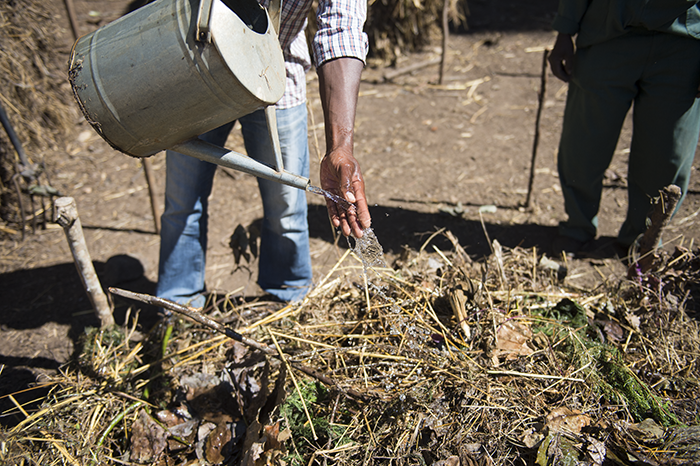
In Zimbabwe, an agricultural training program is planting a new future for aged-out orphans. Photo by TEAM
Steve and Anthea Love helped launch a simple agricultural training program in Zimbabwe, but the possibilities for growth are endless. One day, the Loves hope to see their students living on campus and balancing out their farm skills with business skills, computer knowledge and more. But first, they need the resources to make that possible.
Whether missionaries need teachers, land, money or something else, ask God to provide resources to build effective programs. Also, pray that they will know how to make the most of what they have now.
Pray for lasting stability among the people served.
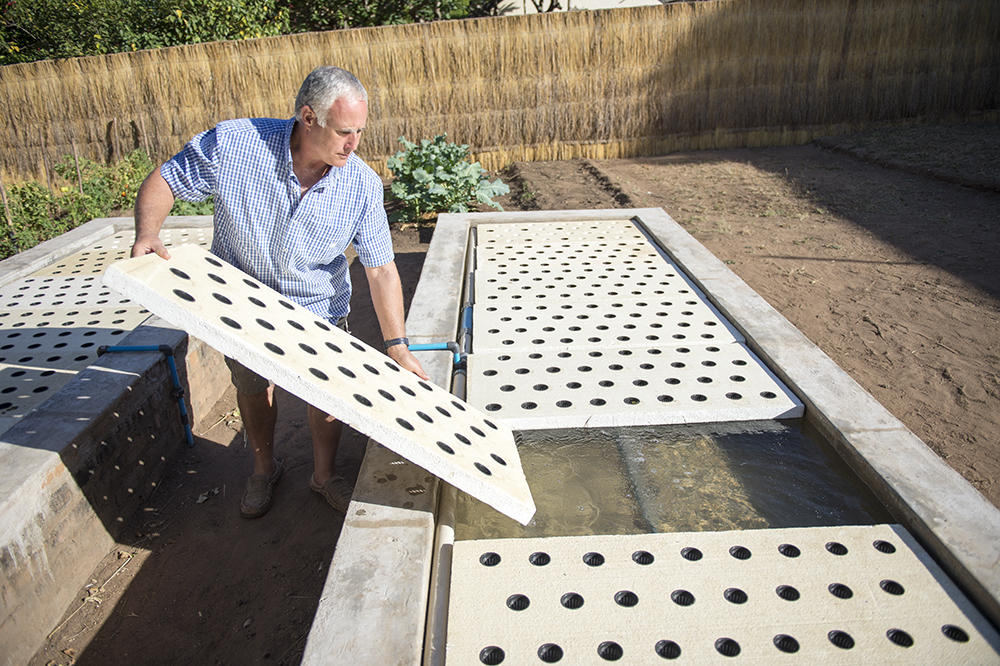
Dave and Cheryl Jereb started an aquaponics garden to generate a sustainable food source for Karanda Hospital. Now they are trying to make every aspect of their garden sustainable by using local labor and materials. Photo by TEAM
A program will only provide long-term relief if people can replicate it after the missionary leaves. That’s why Dave and Cheryl Jereb make their aquaponics systems with as many local materials as possible. Recently, they stopped using plastic nets from the U.S. and taught Zimbabweans how to make them out of wire.
Pray for missionaries to create programs that are easy to replicate without their help or foreign resources. Pray for long-term economic success in the communities they help.
Pray for opportunities to share the Gospel.

In La Paz, TEAM worker Steve Dresselhaus says his involvement in beach cleanups has opened doors to share the Gospel. Photo by TEAM
People in La Paz, Mexico, are often surprised to see Christians involved in beach cleanups — or showing any concern for the environment. This surprise gives TEAM missionary Steve Dresselhaus the perfect opportunity to talk about the Creator who told us to care for the earth in the first place (Gen. 2:15).
As missionaries care for creation, ask God to open doors to share the Gospel. Pray that they can share how sin has brought about great destruction but God Almighty has brought us great hope.
To get a printable reminder of these requests, click the image below.
